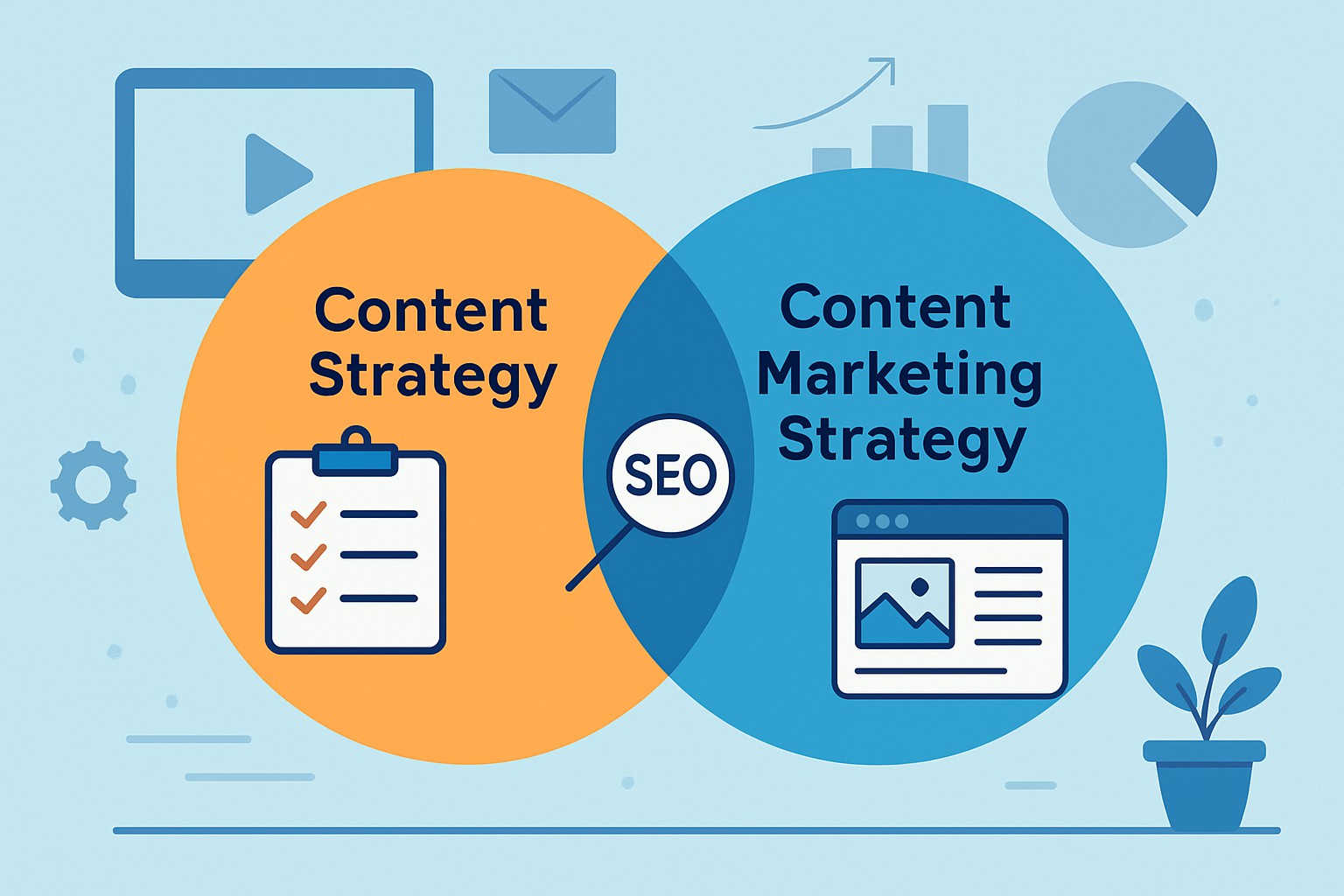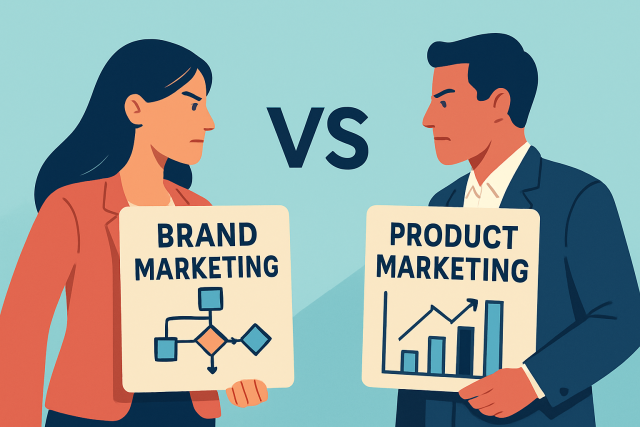
Agile content marketing explained and why it matters now
Explore the fundamentals of agile content marketing, why it’s essential in today’s marketing landsca...

It’s pretty common for marketers and business owners to blur the lines between content strategy and content marketing strategy.
Content strategy is basically the art of planning and managing your content assets, making sure everything’s in its right place. Content marketing strategy zooms in on the creative side—crafting and sharing content with the goal of hitting those marketing objectives just right.
| Aspect | Content Strategy | Content Marketing Strategy |
|---|---|---|
| Primary Focus | Planning, managing, and keeping a close eye on content throughout its entire lifecycle | Creating content, spreading the word, and really connecting with the audience |
| Scope | Encompasses all content assets across the board | Zoomed in on specific campaigns or particular marketing channels |
| Goal Orientation | Building lasting brand value and keeping things consistent over time | Aiming to drive leads and spark conversions in the short to medium run |
| Timeline | Ongoing management with no clear finish line in sight | Timeboxed campaigns shaped by marketing objectives |
| Tactical Elements | Employing editorial calendars, performing content reviews, and upholding quality standards | Leveraging advertising, social media, SEO, and good old email marketing |
Content strategy is about shaping and organizing your content to support your bigger business goals and keeping your brand vibe consistent across platforms over the long haul. On the flip side, content marketing strategy focuses on cranking up audience engagement and driving conversions. It delivers concrete marketing results through targeted campaigns that put your message in the spotlight.
Content strategy lays down the big-picture editorial frameworks along with guidelines for managing content, organizing assets and setting metadata standards. Content marketing strategy dives into planning campaigns and picking the right distribution channels. It also covers deciding on promotion tactics and focusing on target audiences—all to boost engagement and drive sales.
Content strategy planning is really about keeping a finger on the pulse all the time. It calls for ongoing oversight, regular check-ins on existing content and teamwork across departments to make sure everything stays on the same page.
Content strategy is about crafting detailed audience personas and ensuring the brand voice stays consistent across every touchpoint. Content marketing strategy has a sharper focus. It delivers tailored messages with clear calls to action that speak directly to specific audience segments in targeted campaigns.
Content strategy is your trusty guide to keeping messaging consistent throughout the customer journey from the first spark of awareness to when people become enthusiastic advocates. Content marketing strategy zooms in on delivering the right content at vital moments that nudge prospects forward—think eye-opening blogs that grab attention or landing pages crafted to seal the deal.
Evaluating how well a content strategy is working often boils down to trickier qualitative factors like how consistent the brand feels across the board, how cleverly content gets repurposed and the general vibe of user satisfaction. When you zoom out, content marketing strategy usually leans heavily on cold hard numbers like conversion rates, click-through rates and ROI to measure success and fine-tune campaigns.
| Metric Category | Content Strategy | Content Marketing Strategy |
|---|---|---|
| Primary KPIs | Quality of content, keeping editorial standards sharp and consistent | Generating leads, boosting sales, and steadily increasing web traffic |
| Measurement Tools | Regular content audits, plus surveys that bring user feedback right to the table | Google Analytics alongside handy marketing automation tools |
| Reporting Frequency | Quarterly check-ins or whenever the situation calls for it | Weekly updates or timed perfectly with campaign schedules |
| Success Indicators | A steady, recognizable brand voice with minimal repeated content | Higher engagement levels and noticeably improved conversion rates |
Content strategy teams usually bring together content strategists, editors and information architects who keep an eye on the bigger picture of the content ecosystem. Content marketing teams tend to lean heavily on content creators and SEO specialists and campaign managers who are all about execution.
Nailing down a solid content strategy often hinges on using content management systems (CMS) and digital asset management (DAM) platforms along with those trusty editorial tools we all lean on. Content marketing strategies tend to get a nice boost from marketing automation and SEO tools like Moz or Mangools and analytics platforms that keep a close eye on how campaigns are actually performing in the wild.

Diagram illustrating the overlap and differences between content strategy and content marketing strategy processes
Deciding whether to focus on content strategy or content marketing strategy usually depends on a business’s maturity and goals and the resources they have on hand.
Content strategy and content marketing strategy each play distinct but wonderfully complementary roles. Content strategy is all about laying down a solid, steady foundation for your brand that can stand the test of time. Content marketing strategy zeroes in on driving engagement and conversions—those tangible results you can actually track and celebrate.
14 articles published
Driven by a passion for innovation and a deep understanding of consumer behavior, Cadence Ballantyne challenges conventional wisdom, offering fresh perspectives that inspire businesses to forge new paths in the ever-evolving digital realm.
Read Pages
Explore the fundamentals of agile content marketing, why it’s essential in today’s marketing landsca...

Explore the key differences between brand marketing and product marketing with an in-depth compariso...

Unlock the power of high-performance content to engage audiences, improve SEO, increase conversions,...

Discover comprehensive strategies tailored for finance industry content marketing that build trust,...